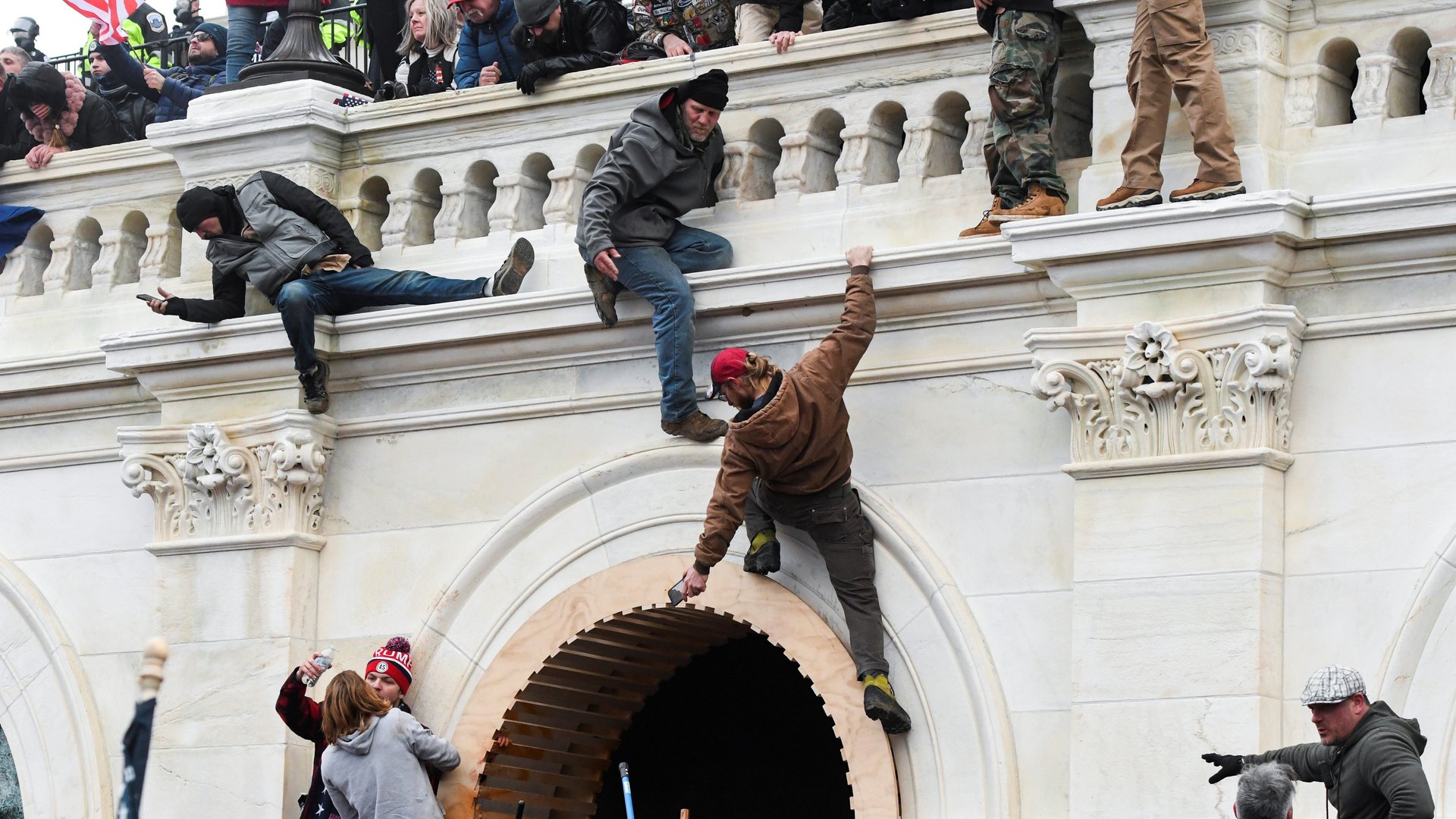Why the US stock market didn’t flinch when a mob stormed the Capitol
Just about everyone was shocked yesterday when a mob stormed the US Capitol—except, seemingly, traders in financial markets.


Just about everyone was shocked yesterday when a mob stormed the US Capitol—except, seemingly, traders in financial markets.
As members of Congress took cover and the National Guard was called in to restore order, US stock investors mostly ignored the political earthquake at the seat of the nation’s power. Yields on Treasury bonds, which are typically in demand at times of turmoil, barely registered in the mayhem. Institutional investors from Paris to Frankfurt have since looked past the shocking scenes of pro-Trump protestors briefly occupying the Senate chamber.
Financial markets may be indifferent, but the events were heartbreaking. Four people died in the violence, and explosives were reportedly discovered outside the Democratic National Committee and the Republican National Committee. Offices in the Capitol were looted and vandalized.
For now, markets appear to be betting that the disturbing episode in Washington won’t affect corporate earnings or the ability of the world’s largest economy to tax and spend. Instead, investors seem more preoccupied with the results of the Senate election in Georgia, which provided Democrats with a slim majority. That recalibration means president-elect Joe Biden will probably be able to pass more ambitious economic support than he would have otherwise been able to.
As “saddening” as yesterday’s events were, the markets are focused on government policy, Hugh Gimber, a global market strategist at JPMorgan Asset Management, said on Bloomberg Radio. He thinks the Biden administration will be able to pass a third stimulus package even though Democrats have only a slender majority. State and local governments are likely to get federal support, all of which is boosting the outlook for near-term economic growth.
As surprising as the mob in the Capitol was, traders have spent months coming to terms with possibility that president Donald Trump would refuse to accept the results of the November election. As economist Campbell Harvey told Quartz in September, even if things get messy, “markets always look ahead.” Investors seem to have decided that voters and US institutions, not Trump, would determine the next American president, and that is what has happened. Even after weeks of false claims from Trump and his allies that election was rigged, yesterday Congress certified Biden’s victory.
There is some precedence for markets to look past US political turmoil, even when it is violent and upsetting. When John F. Kennedy was assassinated in 1963, investors were arguably more preoccupied by the risk of a nuclear war between the US and the Soviet Union. President Richard Nixon’s resignation in 1974, and the assassination attempt against president Ronald Reagan in 1981, also didn’t cause investors to lose faith in the US. Those events, as seismic as they were politically and socially, weren’t seen as systemic risks to the government or financial markets.
Could traders and investors be getting it wrong? Of course. Markets are made up of people who aren’t always rational. Stock investors have shrugged off a once-in-a-generation pandemic so much so that experts are questioning whether some assets are in bubble territory. That traders glossed over yesterday’s upheaval could be another sign that the market has become too anesthetized to risk. In the short-term, it can be impossible to discern why the markets behave as they do.
Trump, belatedly, seemed to accept the results of the election, saying through a spokesperson that “there will be an orderly transition on January 20th.” But there’s no question the election turmoil has dented US standing around the planet, as world leaders expressed sorrow—UK prime minister Boris Johnson called the scenes in Congress “disgraceful.” Goldman Sachs CEO David Solomon warned that the attacks in Washington were just another example of the US squandering the goodwill that it had built over decades.
It showed that the US’s political institutions have been pushed, yet again, to breaking point. The question is whether they will be repaired, as the market seems to be wagering, or whether the strain will be allowed to continue until they finally crumble.